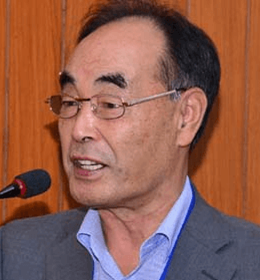We are delighted to welcome you to the 3rd Global Summit on Oil, Gas, Petroleum Science and Engineering, a premier international platform bringing together researchers, industry leaders, engineers, policymakers, and sustainability advocates from across the globe.
As we gather in Boston, a city known for its innovation and academic excellence, this summit will explore the latest advancements and pressing challenges in the oil and gas sector. Guided by the theme "Exploring Energy Frontiers: Science, Technology, and Sustainability," we aim to foster meaningful dialogue, showcase cutting-edge research, and promote collaborative solutions for a more secure, efficient, and sustainable energy future.
Over two dynamic days, expect insightful keynote addresses, engaging technical sessions, and networking opportunities that will connect minds and spark progress.
We invite you to be part of this transformative event—where tradition meets innovation, and energy meets sustainability. This edition of the conference is expected to draw over 100 participants from across the globe.
We look forward to welcoming you in Boston!
Dear Conference Visitors,
We are delighted to invite you to the upcoming the 3rd Global Summit on Oil, Gas, Petroleum Science and Engineering (Petroleum Summit 2026) to be held in Boston, USA during May 18-19, 2026.
The Petroleum Summit 2026 aims to bring together scientists, researchers, experts, students, industries and companies from around the world. By fostering knowledge exchange and discussion, we aim to create a unique multidisciplinary environment for interaction and collaboration related to energy that is major source causing nature and human socioeconomic system not be sustainable.
The detailed scientific sessions cover the current and future need related to technology-based topics of energy. However, in a broad sense, they provide an efficient and effective means for achieving the sustainability of nature and sustainable development of socioeconomic system being promoted as the present and future ideology and practice at a national and global level.
We are actively looking forward to welcoming you to the Petroleum Summit 2026 and collectively exploring the frontiers for expediting the future endeavors in the field related to energy.
With best regards,

Prof and Dr. Dai-Yeun Jeong
Director of Asia Climate Change Education Center, South Korea
Emeritus Professor at Jeju National University, South Korea
Dear Colleagues,
This Special Issue (SI), “Civil, Mechanical and Environmental Engineering—Sustainable Development Goals for the 21st Century”, emerged with the purpose and ambition of translating research into practice. This SI aligns with the recent inclusion of the "impact" section in the Scopus database, which provides insights into an author’s scholarly influence and highlights the importance of research within the academic and professional community. By focusing on the 17 sustainable development goals (SDGs) defined by the United Nations (https://sdgs.un.org/goals), this SI encourages evaluations of how engineering research contributes to achieving "peace and prosperity for people and the planet" across multiple fields.
While some SDGs, such as “industry, innovation, and infrastructure”, align directly with engineering disciplines, this SI invites a broader perspective by posing the following question: What role does engineering play in advancing all 17 SDGs? By examining engineering projects not only through their design and materials but also their workforce, intended social impact, and long-term benefits, this SI encompasses various SDGs.
For instance, from conception to completion, engineering has a transformative effect on communities, creating sustainable and inclusive infrastructure. Civil engineering projects on transportation systems, healthcare facilities, and schools enhance access to resources, public health, and education. Mechanical engineering’s role in designing systems for optimizing resource use and reducing waste directly contributes to circular economic practices. Advancements in materials science and disaster-resilient infrastructure address urgent environmental challenges, whereas environmental engineering integrates structures harmoniously with marine and land environments. Furthermore, innovations in carbon reduction across industrial processes affirm engineering’s commitment to climate action. Finally, ethical practices and interdisciplinary collaboration among these all areas enhance engineering’s contribution to economic and social inclusivity.
This SI provides a publication platform for research presented at conferences where the Guest Editor (GE) has participated as a guest and technical committee member. External contributions are also welcome.
Dr. Enrico Zacchei
Guest Editor
Department of Mechanical Engineering, Higher Polytechnic School of Ávila, University of Salamanca (USAL), Ávila, Spain
Email: [email protected]
Web: https://www.usal.es/
Guided by vision and united in purpose, our committee members are the cornerstone of this conference’s success.